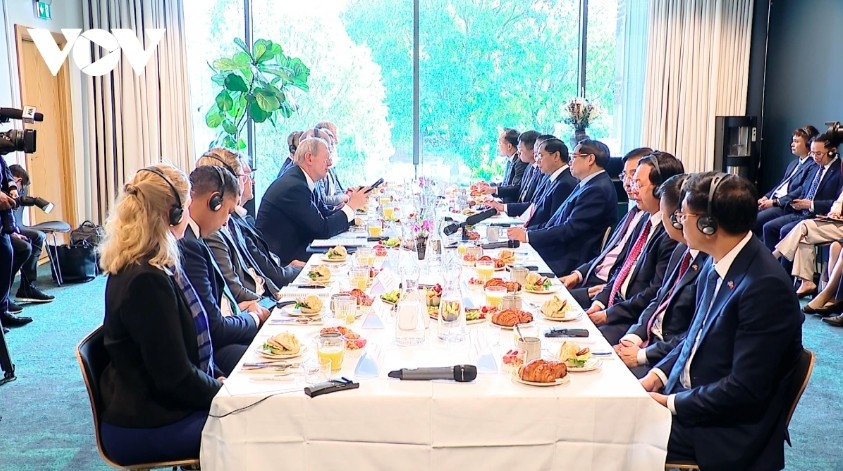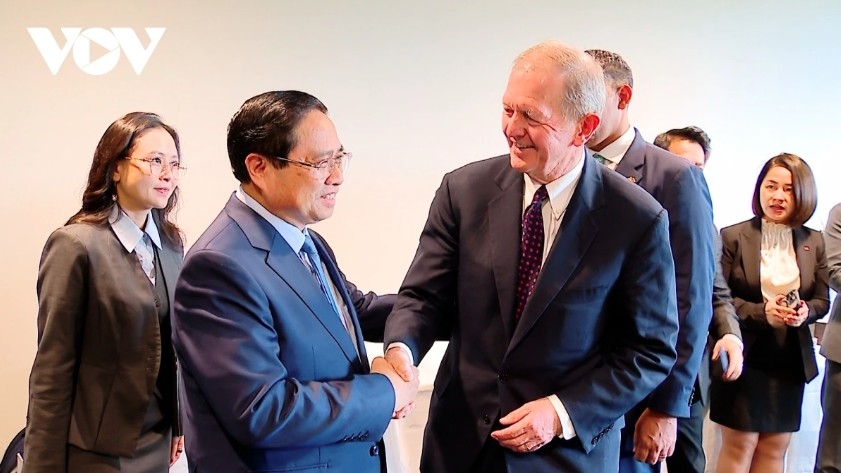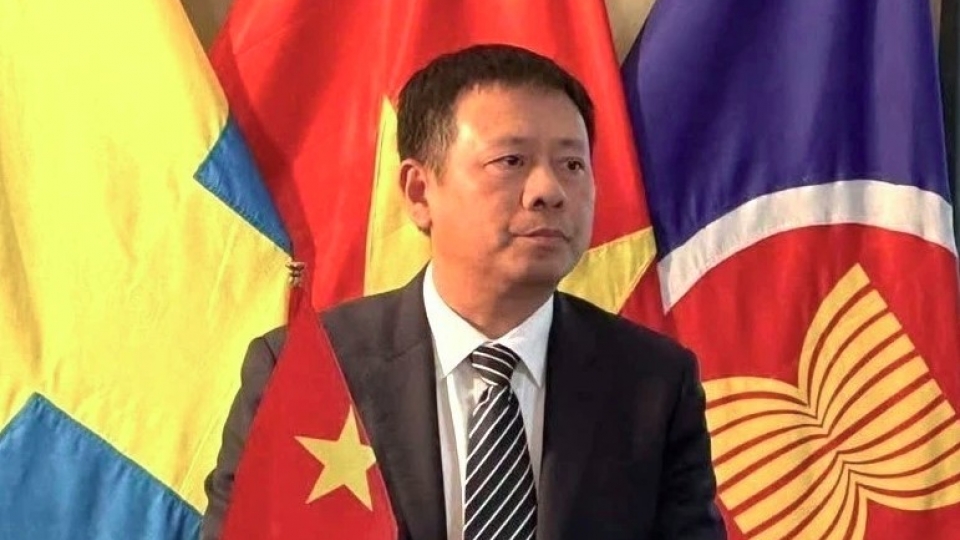Government chief holds working breakfast with Swedish business leaders
VOV.VN - Prime Minister Pham Minh Chinh held a working breakfast with leaders of major Swedish groups in Stockholm on June 12 morning to discuss investment cooperation across key sectors, as part of his official visit to the Scandinavian nation.

Those in attendance included Deputy Prime Minister and Foreign Minister Bui Thanh Son; ministers and leaders of Vietnamese ministries, agencies and localities alongside representatives from Sweden’s Ministry for Foreign Affairs and the Swedish Ambassador to Vietnam.
Marcus Wallenberg, Chair of the Board of Directors of SEB Group and also Chair of Wallenberg Investments AB, FAM AB and Patricia Industries, along with leaders of several businesses within the group’s system such as AstraZeneca and Ericsson, discussed potential investment plans and opportunities in Vietnam across sectors including energy, finance, science, technology, and telecommunications.
Responding to requests from the Swedish side to share views on global affairs, PM Chinh said the world is facing rapid, complex, and unpredictable changes, with broad challenges such as climate change, resource depletion, strategic competition, non-traditional security threats, cybersecurity, population ageing, and growing inequality. Yet peace, cooperation and development remain the prevailing trends. He stressed the need for global solidarity and multilateralism, as well as national self-reliance and sustainable, inclusive growth. Countries, he said, must pursue social progress and equity, and ensure no one is left behind.
Discussing Vietnam’s development strategy and foreign policy, key to its strong growth and sustained international partnerships amid strategic competition, the Vietnamese cabinet leader affirmed the country’s commitment to an independent and self-reliant foreign policy, diversification and multilateralization of external relations, and being a reliable partner to all nations.
Vietnam actively engages in global integration and maintains a defence policy of “no military alliances, no siding with one country against another, no foreign military bases or use of force”. This approach, he noted, has allowed Vietnam to move past the devastation of war and embargoes, respect differences, and find common ground to become a strategic or comprehensive strategic partner to most major powers, including former adversaries.
On the choice of partners for digital infrastructure, particularly regarding national cybersecurity risks, PM Chinh acknowledged that technology, including IT, has both benefits and challenges. Vietnam, he said, prioritizes cooperation with high-tech, trusted, and long-standing partners such as Ericsson. He welcomed expanded Swedish investment in Vietnam’s ICT infrastructure, especially in remote areas, on the principle of “trust as a basis for cooperation, and cooperation to build deeper trust”.
Regarding concerns about investment procedures, regulations, and decision-making processes, PM Chinh noted that Vietnam is undertaking sweeping reforms to modernize governance and improve the business climate.
This includes restructuring its administrative system into a streamlined two-tier model to shift from a passive to a proactive, service-oriented state. Vietnam has committed to cutting at least 30% of business conditions, reducing processing times for administrative procedures by 30%, and lowering compliance costs by the same margin.
He also highlighted digital solutions such as the national single-window investment portal and national legal database, which are aimed at cutting time, cost, and bureaucracy for investors. The PM expressed confidence that Swedish firms’ concerns will soon be dealt with.
On clean energy and power transmission development, PM Chinh said Vietnam has issued its Power Development Plan VIII, Electricity Law, and other laws and resolutions to promote private sector investment. The nation has also joined the ASEAN power grid initiative, with plans to export clean electricity to Malaysia, Singapore and beyond. These developments, he said, create substantial opportunities for Swedish firms.
Responding to interest in investing in robotics and semiconductor R&D and production, PM Chinh affirmed Vietnam’s strong commitment to these sectors and called for Swedish investment, technology transfer, management expertise, and workforce training to support domestic development.
He also emphasized that Vietnam’s highest leadership, its Politburo, National Assembly, and Government, has adopted breakthrough policies to promote science, technology, innovation, and digital transformation, guided by clear orientation and transparent mechanisms.
These include protections for investor rights, property rights, and freedom of enterprise, with civil and economic disputes handled through legal and market-based solutions. He pledged that businesses will increasingly feel a renewed administrative environment, one that boosts smoother, more responsive support for win-win partnerships.
PM Chinh hailed the longstanding ties and shared values between Vietnam and Sweden. He said his official visit would focus on reinforcing these relations in a more substantive and effective manner, especially in politics, diplomacy, and economic cooperation, and in fields where Sweden excels and Vietnam has strong demand, such as science, technology, innovation, IT and energy. These synergies, he said, form a solid foundation for businesses from both countries to expand cooperation.
He affirmed that, in the spirit of “harmonious interests and shared risks,” the Vietnamese Government is committed to being an active partner while listening, supporting, and ensuring the most favorable conditions for both the broader business community and foreign investors, including those from Sweden, to succeed in Vietnam with long-term, sustainable investments.





